As I travel the world speaking on success, people often ask me, “Well Tai, how do you define success and happiness - is it making a million dollars?” Such a loaded question…

Let me defer to the wise words of legendary UCLA basketball coach, John Wooden when he says,
“Success is peace of mind that is the direct result of self satisfaction in knowing you did your best to become the best that you are capable of becoming.”
Sounds cliche, but I am not sure I have ever read a better definition.
Today’s book of the day is Coach Wooden's Pyramid of Success: Building Blocks For a Better Life by John Wooden.
Wooden won more college basketball championships than any other coach in history.
A lot more, 10 national titles in 12 years to be exact. He coached the greats like Kareem Abdul Jabbar and Bill Walton. He even received the Presidential Medal of Honor.
More importantly he had the respect of the world.
This short book can be read in 30 minutes. I read it while having lunch in a little cafe here in Sweden (I just spoke at Uppsala University School Of Economics).
This little book has had me thinking for the last two days.
There are so many ways I have heard humans try to define the purpose of life.
Most answers usually center around happiness, success, and living “the good life.” That seems to be something to agree on.
Of course not everyone agrees on HOW to get there. Christianity lays out one path. Buddhism another. Islam a different route. And Agnostics come up with their own formula.
Nowadays everyone and their brother is an amateur philosopher.
The rapper, Kanye West lays out his plan in one of his popular songs:
“Y'all pop the trunk, I pop the hood -
Ferrari And she got the goods
And she got that a**, I got to look - sorry!
Yo it's gots to be cause I'm seasoned
Haters give me them salty looks - Lawry's
50 told me, go 'head, switch the style up
And if they hate then let 'em hate and watch the money pile up
The good life
Now I, I go for mine, I got to shine (Now throw yo' hands up in the sky)
Now I, I go for mine, I got to shine”
Kanye’s lyrics certainly reflect much of the modern concept of success and happiness, just go for yours and everything will fall into place.
But the great philosopher Aristotle would disagree with Kanye. Aristotle said life should be about reaching Eudomonia. Eudomonia is a magical blend of moral virtues and cultivating the right balance between these virtues to create excellent character in yourself.
In this book John Wooden takes a world view similar to Aristotle's.
He is not alone, the famous psychologist, Martin Seligman says,
“There are three very different routes to happiness.
First the Pleasant Life, consisting in having as many pleasures as possible and having the skills to amplify the pleasures. This is, of course, the only true kind of happiness on the Hollywood view.
Second, the Good Life, which consists in knowing what your signature strengths are, and then recrafting your work, love, friendship, leisure and parenting to use those strengths to have more flow in life.
Third, the Meaningful Life, which consists of using your signature strengths in the service of something that you believe is larger than you are.”
Seligman says this has been proven scientifically:
“Chris Peterson at the University of Michigan and Veronika Huta at McGill University have just tested it (the 3 routes to happiness) with converging results that are startling... The target was life satisfaction. They found that both the Good Life and the Meaningful Life were related to life satisfaction. Astonishingly, however, the amount of pleasure in life did not add to life satisfaction.”
So it seems that the Kanye West “Hollywood” version of pleasure leading to happiness may be flawed.
The idea of the Meaningful Life is nearly identical to John Wooden’s definition of success.
Wooden believes that we all can't be billionaires, that some people are born with more natural capacity than others. But he says we had better try to max out our capacity or we will never be truly happy.
For Wooden happiness is how you remember your past. How you got to where you are today.
He says his favorite poem explains,
“At God's footstool, to confess,
A poor soul knelt and bowed his head.
‘I failed,’ he cried. The master said,
‘Thou didst thy best. That is success’.”
Wooden says by this measure that,
“You are the only one who knows whether you have won. I always wanted my students to know that it was up to each of them to become as good as they could become with the gifts and talents they had been given and in the circumstances in which they found themselves.”
Kind of like who was born with no arms and legs:
Jonathan Haidt in his book Happiness Hypothesis says, “The final version of the happiness hypothesis is that happiness comes from between. Happiness is not something that you can find, acquire, or achieve directly. You have to get the conditions right and then wait.”
In today’s book of the day coach Wooden lays out what he thinks are the ‘conditions’.
He calls it his 26 step “Pyramid of Success”:
Let’s go through them, from the bottom of the pyramid to the top:
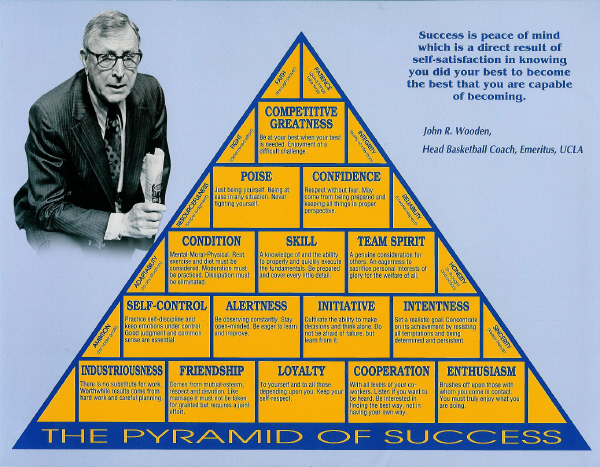
1. Industriousness (hard work and planning):
Wooden says simply, “There is no substitute for hard work.”
But he adds, “Undirected diligence isn’t very efficient; therefore, some planning must go into hard work. The combination of the two [hard work and planning] produces industriousness.”
In my experience success is simple. It’s Plan and Execute. Then modify your plan based on feedback and re-plan and execute again. Just like the scientific process:
- Formulation of a question
- Hypothesis
- Prediction
- Testing
- Analysis
- Tweak Your Hypothesis and Start All Over
It’s amazing that most of us never apply the scientific method to our own life since it’s responsible for almost all the good things we enjoy in the modern world.
So think back on your life.
You either had a good plan and couldn’t execute (which is depressing because you see the fruit hanging right in front of you but you just can’t reach it, just like the story of Tantulus)
Or you had a stupid plan and amazing execution (this is a slight nightmare since you will basically create a monster).
Or you had a stupid plan and couldn’t execute (I call this ignorant bliss because you never knew how dumb your plan was because you couldn't pull it off).
Or you were one of the 5% who had an amazing plan and executed on it (this of course will bring you health, wealth, love and happiness).
2. Enthusiasm:
Wooden explains, “If we are to succeed, we have to enjoy what we do. If we enjoy what we do, we will be enthusiastic about it. Enthusiasm thereby enables us to push as hard as we need to push for as long as we need to push to achieve our best.”
When I first read this I disagreed a bit because I have seen the idea of “do what you love” fail so often.
Allan Nation told me once, “Tai don’t do what you love because once you do it for a job you won’t love it anymore. Do what you like.”
It’s kind of like marrying someone you lust after. Lust will go away and if you aren’t married to someone you get along with also as a friend, well that marriage will probably be short lived.
I remember that I used to love Salsa dancing. I went almost every night. I competed, loved it. Then I decided to open salsa nightclubs and guess what happened? I never really danced again for years. Once it was a job all the ‘love’ for it when away.
I was interested though to see that Wooden adds,
“As beneficial as enthusiasm is, it must be dispatched in moderation. Extreme highs do not work. In fact, too much emotion can be counterproductive. Highs lead to lows, and such swings of intensity result in instability. I wanted my players on an even keel so that their thinking wasn’t adversely affected by emotion. Quiet enthusiasm gets results. It exudes confidence and rubs off in wonderful ways.”
3. Friendship:
He says, “People make us better… We were not designed to go through life alone… Make friends and maintain friendships.”
4. Cooperation:
Wooden explains, “Some individuals, such as writers and scientists, often work alone and accomplish much. But in my opinion, those who primarily work alone will never become all they could become if they were working in cooperation with others.”
You could probably argue this both ways in my opinion.
There is an interesting new book: Quiet: The Power of Introverts in a World That Can't Stop Talking by Susan Cain where she argues that introverted, non social people like Bill Gates are the ones who change the world.
Maybe the answer is somewhere in the middle - being able to be alone when needed to concentrate but selectively partnering up with amazing people.
In Michael Eisner’s great book Working Together: Why Great Partnerships Succeed he writes how Bill Gates told him, “‘I’ve never done anything solo… Except take tests. But with the exception of that, I would always seek someone out’.”
Eisner adds, “It’s clear from the early part of Bill’s life that partnerships were integral to all that he did at warp speed.”
It’s kind of like dating. It’s better to be alone than in a relationship with a horrible person. But like Dr. Agus says in A Short Guide to a Long Life if you can find a good person to live with you will be a hell of a lot happier.
5. Loyalty
6. Self-Control
7. Alertness
8. Initiative
Wooden says, “Cultivate the ability to make decisions and think alone. Do not be afraid of failure, but learn from it.”
This follows what Joel Salatin used to tell me, “Tai, do something - even if it’s the wrong thing.”
Initiative creates momentum. Mikhail Tal the chess grandmaster played a momentum game. He wouldn’t always have the best position on the board but he still won because he kept one step ahead of his opponent. The person with momentum usually wins.
Wooden says, “My college coach once said, ‘The team that makes the most mistakes will probably outscore the other one’.”
(Love that. Need to write it on my hand and look at it every time I have a tough decision to make).
At the talk I just did in Sweden I talked about the “Law Of Junte” which is a tradition in Sweden that basically discourages people from trying new things.
The fear of failure is intense here in Sweden but I see that fear all over the world. It’s flawed because, remember, the average millionaire failed 2 or 3 times before hitting it big.
The question that always plagues me is even if you eliminate your fear, how in the world can you know what the right thing to do is. We never have 100% of the facts in front of us.
I recently read a genius answer in the The 21 Irrefutable Laws of Leadership by John C. Maxwell.
He says General Colin Powell follows the “40%-70% rule.”
Powell says that every time you face a tough decision you should have no less than forty percent and no more than seventy percent of the information you need. Once you have that much info just decide.
This is the balance between getting too little information and making a mistake and waiting too long and overthinking it.
Genius answer in a world of so many choices and so much “Paralysis by over analysis.”
9. Intentness:
Wooden says, “Intentness is the ability to resist temptation and to avoid rabbit trails of distraction. An intent person will stay the course and go the distance. He or she will concentrate on objectives with determination, stamina and resolve. Intentness is the quality that won’t permit us to quit or give up, even when our goal is going to take a while to accomplish.
Our society has been permeated by a mindset of immediate gratification. Simply put, people are impatient. They want too much too soon.
They have lost sight of an overarching truth: in life, worthwhile accomplishments and acquisitions take time. Usually, the better the reward, the more time it takes to acquire it. Intentness gives us the doggedness to hang in there and overcome impatience. Intentness is patience with action.”
This is just too good for me to even attempt to comment on actually. Focus Tai, focus...
10. Condition:
Wooden basically says rest, exercise, and eat healthy.
11. Skill:
I think this is the defining part of success. Inborn talent is in some ways just a myth.
Read Bounce: The Myth of Talent and the Power of Practice by Matthew Syed.
Syed makes a compelling case that we think people are born with innate talent.
But Syed has the science to prove that it’s not about talent, it’s about purposeful practice and skill building.
I wrote an article that said:
“The average millionaire does NOT have a genius IQ. Research has shown this to be true. Jay Zagorsky, author of a study on wealth and IQ and a research scientist at Ohio State University 's Center for Human Resource Research says ‘People don't become rich just because they are smart,” he said “Your IQ has really no relationship to your wealth.’
Warren Buffett, one of the richest billionaires in the world says that if you have an IQ over 130 you should sell the extra to someone else.
Your IQ has LITTLE to do with how wealthy you become. My mentors taught me that what is important is building skill.
You have to let go of the ‘Talent Myth’. The belief that some people are just born with natural skills that make them successful. We now know this may be the biggest lie ever forced on humans in the last 500 years. Let me quote from ‘The Independent”:
“What if our deepest assumptions about success in education and sport – indeed, in life itself – are misconceived? “
A ground-breaking study on British musicians found that the top performers had learned no faster than the lower performers. The various groups improved at almost identical rates. The difference was simply that top performers had practiced for more hours. Further research has shown that when top performers seem to possess an early gift, it is often because they have been given extra tuition at home by their parents.
And the same insight is revealed by looking at child prodigies who seem to have been blessed with amazing skills. But research proves otherwise.
Tiger Woods, for example, was considered "The most talented player of all time”
But remember Woods was given a golf club five days before his first birthday; that by the age of two he had played his first round; that by five he had accumulated more hours of practice than most of us achieve in a lifetime.
Way back in 1896 the French psychologist, Alfred Binet experimented with two math geniuses against two ordinary cashiers from a department store in Paris. The cashiers had an average of 14 years' experience in the store, but no natural mathematical talent.
Binet made the 2 groups compete on math problems.
And guess what - the ordinary cashier was faster than the ‘math prodigies’. So just old fashioned practice made the "perfectly normal" people smarter than the prodigies.
Recently Professor Brian Butterworth of UCL, the world's foremost expert on mathematical expertise, has put it: "There is no evidence for differences in innate specific capacities for mathematics."
Carol Dweck, a leading psychologist and Matthew Syed’s recent research shows that instead of inborn talent it’s more about a mentality of practice, purposefulness and what scientists call a ‘growth mindset’.
And if you study millionaires you see that they were not concerned with the hand that life had dealt them at birth.
No, my mentors taught me that we have everything we need right in our own power no matter how much ‘talent’ we were born with.
Once you understand this you will be set free from the myth that keeps so many people poor. “
Now John Wooden doesn't completely agree with me or the book “Bounce”.
He thinks that talent is somewhat inborn and adds, “God only made one Kareem Abdul Jabbar.”
But where we agree is that we must all focus on building skills in areas that are our strengths. Whether or not those strengths are innate is irrelevant semantics.
Now finding out what your real strengths are is trickier than you think. I wrote about Peter Drucker’s opinion in this past article.
12. Team Spirit:
Wooden says, “I once heard team spirit defined as a willingness to lose oneself in the group for the good of the group. I used that definition for a long time, but always thought it fell short. It took a while but I finally figured it out. I changed ‘willingness’ to ‘eagerness.’ Willingness is more like ‘I will if I have to.’ Eagerness communicates an attitude of ‘I’ll be happy to sacrifice personal accomplishments for the good of the team.”
I lived with the Amish for 2.5 years in my early 20’s. Horse and buggy, no electricity, it was the real deal.
People sometimes ask me why I did it. It was for many reasons but mainly because I wanted to see what the world was like 100 years ago. I always loved history and wanted to travel back in time and living with the Amish was the best way I knew how.
In their humble way the Amish taught me many profound lessons (I’ll write about them soon in a new article - and no the reality TV shows about the Amish are all fake - the real Amish are nothing like that).
Maybe the most important lesson that my years without electricity taught me were how to live together in harmony with other people - community life.
The Amish have a word in German “Gelassenheit”. The direct translation is something like “Giving up to God” or giving up your personal interests to something bigger than yourself.
For the Amish giving up for the good of something bigger than you is what will bring you peace.
This is what Wooden means when he says losing yourself for the good of the group.
I read Mother Teresa's biography and she talks on why she thinks most people aren’t happy. She says people focus on improving their own life.
She teaches the opposite, that happiness comes as a result of serving others.
She says, “A life not lived for others is not a life.”
Even if you aren’t religious there is a good bit of science to back this up.
Dr. Seligman says we should pursue level three happiness, “The Meaningful Life, which consists of using your signature strengths in the service of something that you believe is larger than you are.”
Evolutionary psychologists have proven that we humans are highly social creatures and that our adaptive, evolved brain functions only give off the ‘reward’ signals when we feel part of a larger social group. The very evolution of our mind exists because of this need for strong social bonds.
13. Poise
14. Confidence:
He says it’s simple. It comes from preparation.
15. Competitive Greatness:
I like that Wooden balances the classic virtues with competitiveness. It’s an incomplete understanding of life to leave out the need for humans to compete. We evolved with tremendous capacity and need for intrasexual competition (competing with people of our own gender).
If you need proof of this, next time you are in a nightclub or a restaurant watch what the eyes of women when another beautiful woman walks in the room. The women stare just as much as the men. Especially if the woman is young, attractive, and dressed provocatively. And women don’t just stare, they also talking negatively about the girl. That’s the intrasexual competition so hard wired into us like clockwork.
Men of course are just as competitive.
Now obviously the modern world has no place for another Genghis Khan or Attila the Hun but Wooden says there is nothing wrong with rising to the occasion and showing what you can do with a little friendly competition.
Hopefully our competition rises above petty gossip or materialism.
16. Ambition:
He says ambition should be focused on noble goals bigger than ourselves. I like that.
17. Sincerity:
He gives a great quote - “Sincerity may not make a friend, but it will keep one.”
The trouble is that telling someone the tough truth often only pays in the long run.
18. Adaptability:
He calls this the ability to adjust or be malleable to the situation. I can’t tell you how often I see myself and those around me struggle with this. The fine line between stubbornness and being wishy washy is so easy to blur.
I can pretty much divide people I mentor LINK into 2 categories.
A. Those that can NOT read what I call “The obvious signs.” Even if their life is one disaster after another they can’t put two and two together and make a change.
Sometimes I think, “Where the hell do you get the confidence to continue to mess up everything you touch and still say so sure of yourself?”
B. Those that turn and run every time they hit some form of adversity.
Aristotle knew you couldn’t be either extreme.
He taught that you had to live in the “mean” or the middle between two false extremes.
He said, “Anybody can become angry – that is easy, but to be angry with the right person and to the right degree and at the right time and for the right purpose, and in the right way – that is... not easy.”
His point is most people either have bad tempers or just let people walk all over them. Aristotle is all about finding the balance.
Wooden calls this adaptability - being resolute (stubborn) at the right time and adapting at the right time.
This of course take’s wisdom.
The truly happy life is the wise life.
A mentor once told me that you have to be “worth a damn.” Over the years I realized he meant being aware.
So go home, look at your body naked in the mirror. If you don’t like what you see then adapt. STOP eating at Mcdonalds.
Look at your bank account today. If you are like Jim Rohn when he was young and have “pennies in your pocket” than humbly admit that you’ve been a moron with money.
If you have horrible friends and romantic relationships than be aware of your tendency and go read a John Gray book or watch reruns of the best of Oprah and Dr. Phil.
And if you aren’t happy then read this.
19. Honesty
20. Resourcefulness:
This trait is all about the entrepreneur. It reminds me of Richard Branson stories in his amazing book Screw It Lets Do It.
He says, “My mum, Eve, is a perfect example of this. During the war, she wanted to be a pilot. She went to Heston airfield and asked for a job. She was told only men could be pilots. Mum was very pretty and had been a dancer on stage. She didn’t look like a man. That didn’t stop her. She wore a leather flying jacket and hid her blonde hair under a leather helmet. She talked with a deep voice. And she got the job she wanted.”
That creative, resourceful gene runs in the Branson’s blood apparently.
If you need inspiration read about Branson, the man was a resourceful machine.
He went to OUTER SPACE in a BALLOON!
Listen to this insane story:
“Our plan was to cross the ocean on one of the jet streams that circle the earth between 20,000 and 40,000 feet up. They travel as fast as a river in full flood. Below that, the winds are slower. Our problem was the height of our giant balloon from the top to the bottom of the capsule below. It was over 300 feet. As we broke through into the jet stream, the top half of the balloon and the bottom would travel at different speeds. Anything could happen.
Inside the capsule we put on our parachutes and clipped ourselves to the life rafts so that if anything went wrong we did not waste valuable time doing that later. Then we fired the burners. As we rose, the top of the balloon hit the bottom of the jet stream.
It was like hitting a glass ceiling. We burned more fuel to try to rise, but the winds were so strong they kept pushing us down. We burned even more fuel – and at last broke through. The top of the balloon was caught by the fast current and took off like a rocket. It was flying along at a crazy angle at 115 miles an hour. The capsule, with us inside it, was still going at 25 mph.
It felt like a thousand horses were dragging us apart. We feared the balloon would be torn in two, and the heavy capsule would hurtle thousands of feet down to the sea.
But, at the last moment, the capsule shot through the glass ceiling and the balloon righted itself.
‘No one has ever done that before,’ Per [Branson’s co-pilot] said.
We flew along at great speed, faster than we thought possible. Seven hours later it was time to lose the first empty fuel tank. It seemed safer to drop down out of the jet stream to do this. We cut off the burners and went down into a slower zone. At once, the capsule acted like a brake, but the balloon still hurtled along. We could see the angry grey sea 25,000 feet below us. I wondered if we would end up in it.
Per pressed the button to release the empty fuel tank. At once, the capsule lurched sideways. The floor tilted and I fell against Per. To our horror we found that two full tanks as well as the empty one had fallen off one side. They weighed a ton each. Not only were we lopsided and off balance, now we didn’t have enough fuel to control our height and find the right wind pattern, so we couldn’t reach the USA. Three tons lighter, the balloon soared upwards. We hit the jet stream so fast we shot through the glass ceiling like a bullet and kept on rising. Per let some air out of the balloon, but still we flew up and up.
We had been warned that the glass dome of our capsule would explode at 43,000 feet and our lungs and eyeballs would be sucked out of our bodies. At 41,000 feet we entered the unknown. We reached a frightening 42,500 feet. We had no idea what might happen.
We were higher not only than any balloon had been, but than any aircraft had ever flown, except Concorde.
At last we stopped rising. The balloon cooled and we started to fall fast. We didn’t want to burn extra fuel, but we had to, to stop falling. We couldn’t come down in the sea because there was no one to rescue us. We would have to last for another thirty hours on almost no fuel. In order to reach land we had to fly faster than any balloon had ever flown before. That meant staying right in the centre of the jet stream, a space just a hundred yards wide. It seemed impossible.
The final straw was when we lost radio contact. We had been going for hours and Per was worn out. He lay down and fell into an instant, deep sleep. I was on my own. I don’t believe in God, but that day it felt as if a guardian angel had entered the capsule and was helping us along. From the dials I saw that we had started to speed up, faster and faster. I thought I was dreaming and slapped my face to make sure I was awake.
We went from 80 miles an hour, through to 180, then 200, then 240. This was unheard of. It seemed like a miracle. I was so bone weary, I felt spaced out. When I saw strange, flickering lights in the glass dome, I thought they were spirits. I watched them as if in a dream, until I realised that burning lumps of gas were falling all around. It was minus 70 degrees outside. If a fireball hit the glass dome, it would explode.
‘Per!’ I yelled. ‘Wake up! We’re on fire!’
Per woke up fast. He knew at once what to do. ‘Take her up to forty thousand feet where there’s no oxygen,’ he said. ‘Then the fire will go out.’ At just under 43,000 feet the flames died and we started down again. But we had wasted precious fuel.
Then the radio came back on. A voice said, ‘War’s broken out in the Gulf. The Americans are bombing Baghdad.’ It seemed strange that while we were alone almost on the edge of space a war had just started on Earth.
Our ground crew told us our jet stream had turned. It would loop us back to Japan. We had to get into a lower jet stream at once, one that would take us to the Arctic. We dropped down to 30,000 feet and flew hour after hour at over 200 miles an hour in a lopsided capsule. We finally landed in a blizzard, on a frozen lake in the far north of Canada in a wild area 200 times the size of Britain. We were so far off the beaten track it took eight hours to be rescued. By then we both had frostbite.
‘Next time, we’ll fly around the world,’ Per said. I laughed, but I knew I couldn’t turn down a challenge. We made the attempt a couple of years later, but someone beat us to it.
Now I am planning space travel as my next big thing, with Virgin Galactic.
Just before we had left to cross the Pacific, my daughter, Holly, sent me a fax. She wrote, ‘I hope you don’t land in the water and have a bad landing. I hope you have a good landing and land on dry land.’
It seemed a perfect metaphor for my life.”
Allan Nation told me that the entrepreneur remakes the world in his or her own image.
That’s what the world needs. Resourceful people like Branson remaking the world.
21. Reliability:
I quoted in my article, “The Wisest Graduation Speech of all Time”
what the billionaire Charlie Munger told the graduating class at University of Southern California,
“What will really fail in life? What do you want to avoid? Such an easy answer: sloth and unreliability. If you’re unreliable it doesn’t matter what your virtues are. Doing what you have faithfully engaged to do should be an automatic part of your conduct. You want to avoid sloth and unreliability.”
Unreliability negates any other skills and virtues you have because you lose the respect of the allies you’ll need in life.
I can’t tell you how many people I know who have it ALL except they are unreliable.
A disproportionate amount of amazing people grew up on farms - Oprah Winfrey, Thomas Jefferson, John Wooden, Benjamin Franklin, Isaac Newton, Jim Rohn, Charlize Theron.
I think it’s what a farm teaches about reliability. There is something about having to milk a cow or tend a garden every day that builds something deep into a child’s character.
Will Durant once wrote, “A nation is born stoic and dies epicurean.” (Look it up if you don't know what it means, it’s worth knowing). I could link to the definition but I guess I’m testing how resourceful and reliable you are…
22. Fight:
Wooden says, “A player with fight has a contained fire burning in his or her belly. The emerges as focused passion.”
I like that he threw in the word “focused” passion.
To make it in this world you are going to need a ton of energy and the ability to focus it like a laser beam.
I was just facebook commenting back and forth with someone. He was asking me what he should do in life, what career he should pursue. He said he was good at many things and liked marketing in general.
Here is what I wrote back:
“The world is too competitive to think this broadly.
Marketing is too big a category.
Find a specific industry you want to market in.
Remember for every ding dong friend I have that says ‘Tai, I am good at everything’, I have one friend who says ‘Tai, I'm going to become the king of ONE THING.’
Guess which friend I would invest in (the ding dong comment gives it away)...
I want to tell my 'generalist' friend - ‘Hey welcome to Planet Earth. Last time I checked you weren't Leonardo Da Vinci.’
Polymaths (people who are good at many things) come along every few centuries... “
In other words I was telling him that he needs “Focused Fight”.
I like the sound of that, “Focused Fight.” Maybe I’ll copyright the phrase like Donald Trump and “Your Fired” or better yet “That’s Hot” like Paris Hilton (Wtf was she thinking haha)…
23. Integrity:
He says this means purity of intention and keeping a clean conscience. Wooden says it’s found in people who are concerned with the betterment of other people.
24. Patience:
Ah the big flaw in all of us modern humans. I need to read Wooden’s definition over and over:
“Patience is the ability to wait and calmly persevere. We all grow impatient, but some people have more trouble waiting than others do.
We tend to forget that all good things take time.
Think about the fun of Christmas. Why can’t children get to sleep on Christmas Eve? Anticipation! The waiting heightens the joy everyone experiences the next morning.
Good things take time, as they should. We shouldn’t expect good things to happen overnight. Actually, getting something too easily or too soon can cheapen the outcome. For example, people who inherit a lot of money frequently don’t appreciate it and cannot handle its value. Many end up broke and disillusioned.
The maxim ‘easy come, easy go’ carries more truth than most people realize.
When we add to our accomplishments the element of hard work over a long period of time, we’ll place a far greater value on the outcome. When we are patient, we’ll have a greater appreciation of our success.”
This is good. The best thing I’ve ever read on the subject was by Munger:
“Spend each day trying to be a little wiser than you were when you woke up. Discharge your duties faithfully and well. Step by step you get ahead, but not necessarily in fast spurts. But you build discipline by preparing for fast spurts. Slug it out one inch at a time, day by day. At the end of the day – if you live long enough – most people get what they deserve.”
Elsewhere he adds, “Success means being very patient, but aggressive when it's time.”
I once read that the best analogy for a millionaire is a tiger crouching behind a bush. You have to wait patiently for your time and then when it appears pounce for all your worth.
Charlie’s grandfather once told him, "Real opportunities that come to you are few, its a very fortunate life that is just bathed in opportunity all the way, most people just get a few times where they can make a huge difference by seizing a huge activity and he said 'when u find one my dear grandchildren and you can clearly recognize it seize it boldly and don't do it small!' "
25. Faith:
Brian Acton just sold WhatsApp for $19 billion.
But look at the faith he had 5 years ago when he couldn’t get a job anywhere. Someone posted the tweets he posted back in 2009 when twitter and facebook both wouldn’t give him a job:
Got denied by Twitter HQ. That's ok. Would have been a long commute.
— Brian Acton (@brianacton) May 23, 2009
Facebook turned me down. It was a great opportunity to connect with some fantastic people. Looking forward to life's next adventure.
— Brian Acton (@brianacton) August 3, 2009
That's faith. Faith is rare. But remember, the rare is what's valuable in life.
Why do you think gold sells for $19,514.97 a pound and Iron sells for $0.08 a pound?
Simple - gold has an atomic number of 79. It originates from a super hot star (a super nova) exploding and shooting out fragments of gold into the asteroids and meteors that hit the earth eons ago. There weren't that many super hot stars exploding back then and that’s why there isn't much gold on the planet.
Iron on the other hand has an atomic weight of 26. Any old star exploding was hot enough to make this element and a lot of it was deposited on earth. That’s why Iron is cheap.
For something to be valuable it has to be 2 things, rare and in demand.
Gold is both.
In the same way the faith to persevere when everyone around you has given up is both rare and in-demand skill.
This is why we idolize great leaders like Winston Churchill or the ripped six pack Spartan warriors in the movie 300 or Mel Gibson in Brave Heart when he says:
“Will you fight?” Two thousand against ten?” – Yes!”
Be one of the rare people who have faith and believe in things they can’t see.
I think courage and faith go together.
Read my other article on how to build more courage.
26. Success:
For John Wooden the pinnacle of his pyramid was Success.
I think the key to remember is that Wooden’s system is based around building character and virtue which in the short term will not always feel fun. It might even feel downright unpleasant.
But life and happiness is more than just the moment, it’s about how you remember life in the long run.
There is a great article about the Nobel Laureate Daniel Kahneman and his research on happiness that says,
“Princeton psychologist Daniel Kahneman has made an important distinction between two types of happiness: (i) happiness as we experience it on a moment-to-moment basis; and (ii) happiness as we remember it after-the-fact.
Experienced happiness and remembered happiness are of course related - they correlate about .50 - but they are not identical.
Consider raising children. On a moment-to-moment basis, raising children is not fun - stinky diapers, tantrums, arguments about curfews, punishingly high tuition fees, and so on. But when we think back on raising our children, we say that it was the best and most enjoyable thing we have ever done Are we hypocrites? Not at all. It's just that experienced happiness and remembered happiness do not always line up.
As I see it, both experienced happiness and remembered happiness matter. And remember that they are somewhat related, not independent. We live in the here-and-now but also in the past (as we recall it) and the future (as we anticipate it). Indeed, we base most of our important life decisions on remembered happiness and out expectation (hope) that the future will repeat the past ... as we remember it.”
Those of you who are raising little children will understand.
If you want success, true success and the happiness it brings, it’s all about the intangibles that maximize our natural talent.
I know of no better list of intangibles than this list of 26 virtues from John Wooden.
He ends by saying,
“I am 94 years old… I can recount the blessings in my life, but blessing are success. The real determining factor is this: Did I make the effort to do my best? That is the only criteria, and I am the only one who knows (well, me and God).
Am I a success?
I have peace of mind.”
I hope you and I will both look back at our lives with this same sense of peace.
Be sure to watch Coach Wooden’s TED talk, it’s profound:
To close here are a few little good sayings Wooden says to remember:
1. Be true to yourself.
2. Make each day your masterpiece.
3. Help others.
4. Drink deeply from good books, especially the Bible.
5. Make friendship a fine art.
6. Build a shelter against a rainy day (i.e. save money)..
7. Pray for guidance and give thanks for your blessings every day.
8. Failing to prepare is preparing to fail (from Benjamin Franklin)
9. Flexibility is the key to stability
10. Be quick, but don't hurry
11. Seek opportunities to show you care. The smallest gestures often make the biggest difference.
Question: Which of the list above is the easiest and hardest for you to cultivate (Leave your answer in the comments below)
COMMENTS
Best of Tailopez
-
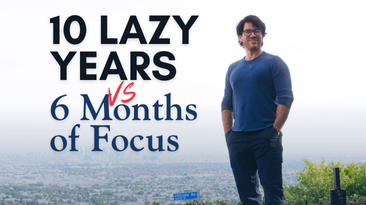 Ten Lazy Years Can Be Erased With Six Focused Months
Ten Lazy Years Can Be Erased With Six Focused Months -
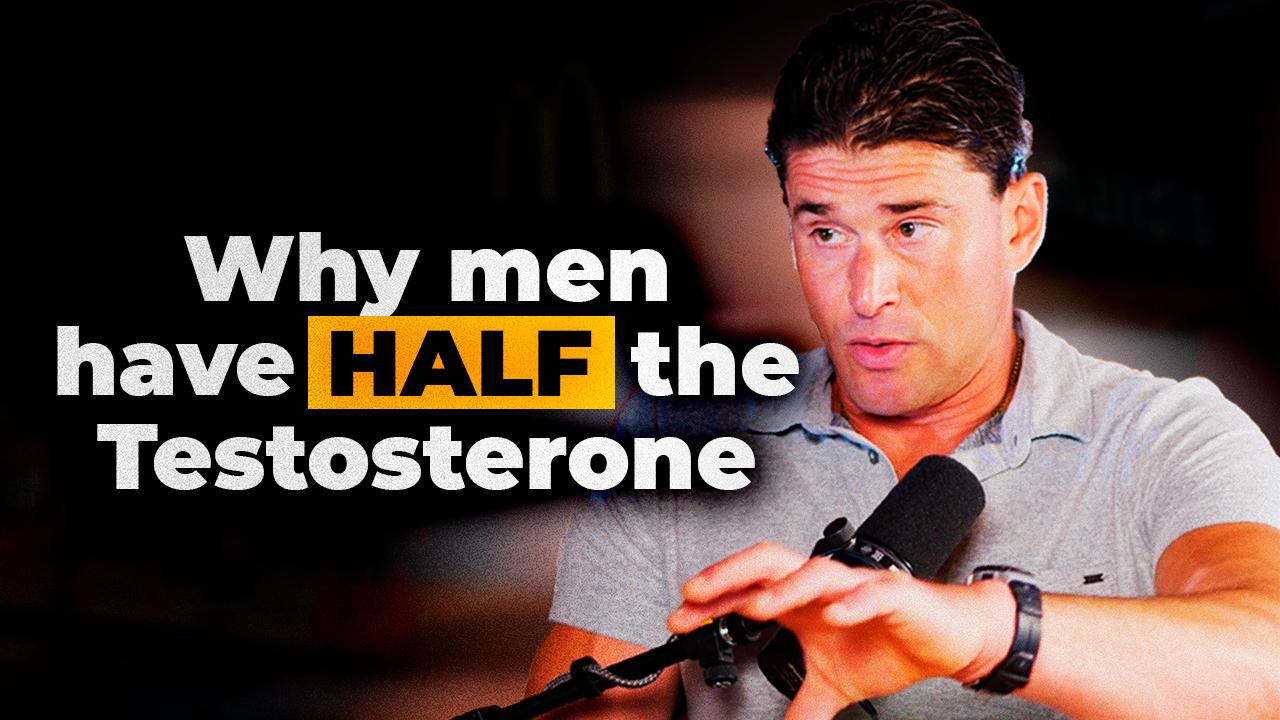 Why Men's Testosterone Is Half Their Grandfather's with Ben Greenfield
Why Men's Testosterone Is Half Their Grandfather's with Ben Greenfield -
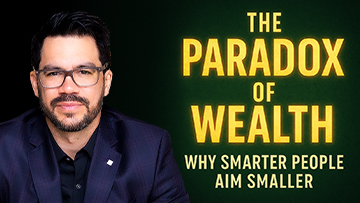 The Paradox of Wealth: Why Smarter People Aim Smaller
The Paradox of Wealth: Why Smarter People Aim Smaller -
 Mamma Mia in West Adams: Tai Lopez Finds LA's Pasta Holy Grail at Cento Pasta Bar
Mamma Mia in West Adams: Tai Lopez Finds LA's Pasta Holy Grail at Cento Pasta Bar -
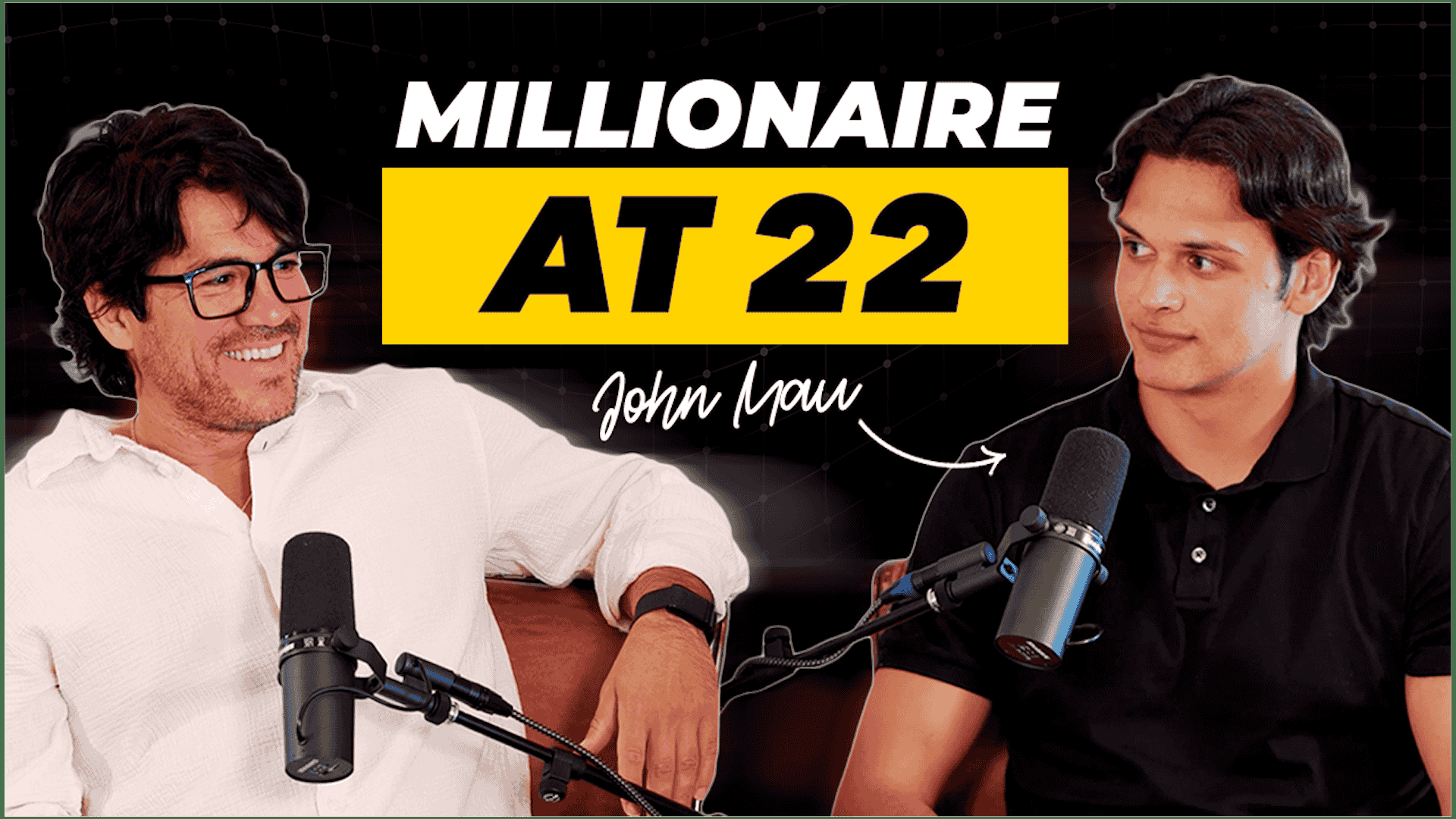 Sales Training, Scaling, and Breaking Objections: Tai Lopez with Johnny Mau
Sales Training, Scaling, and Breaking Objections: Tai Lopez with Johnny Mau

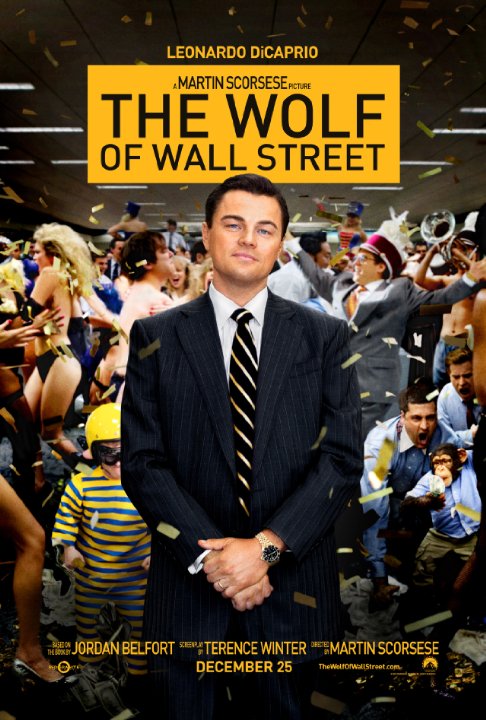
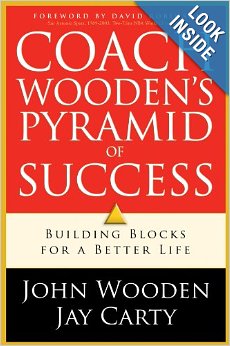
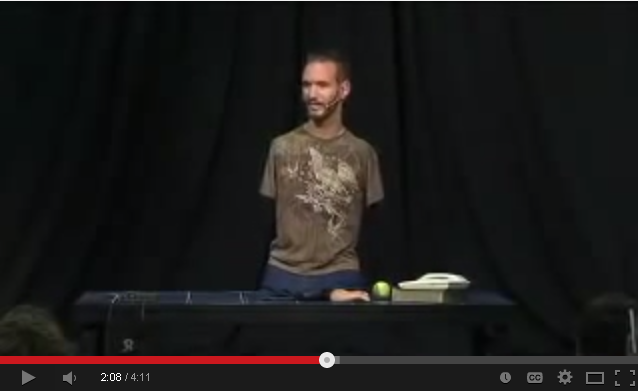
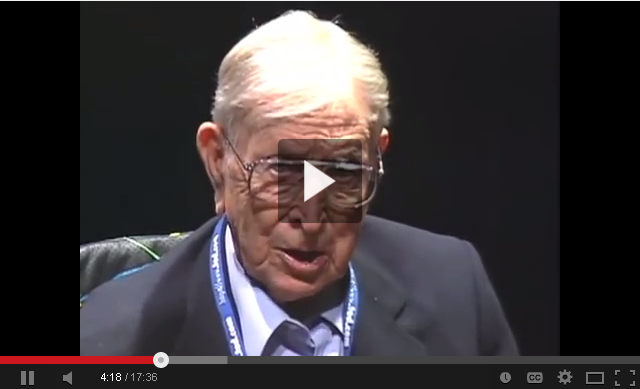
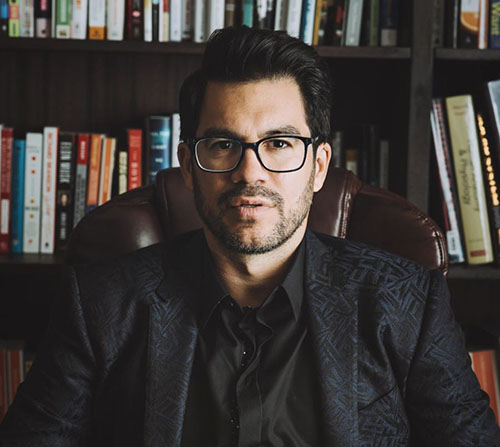
0 Comments